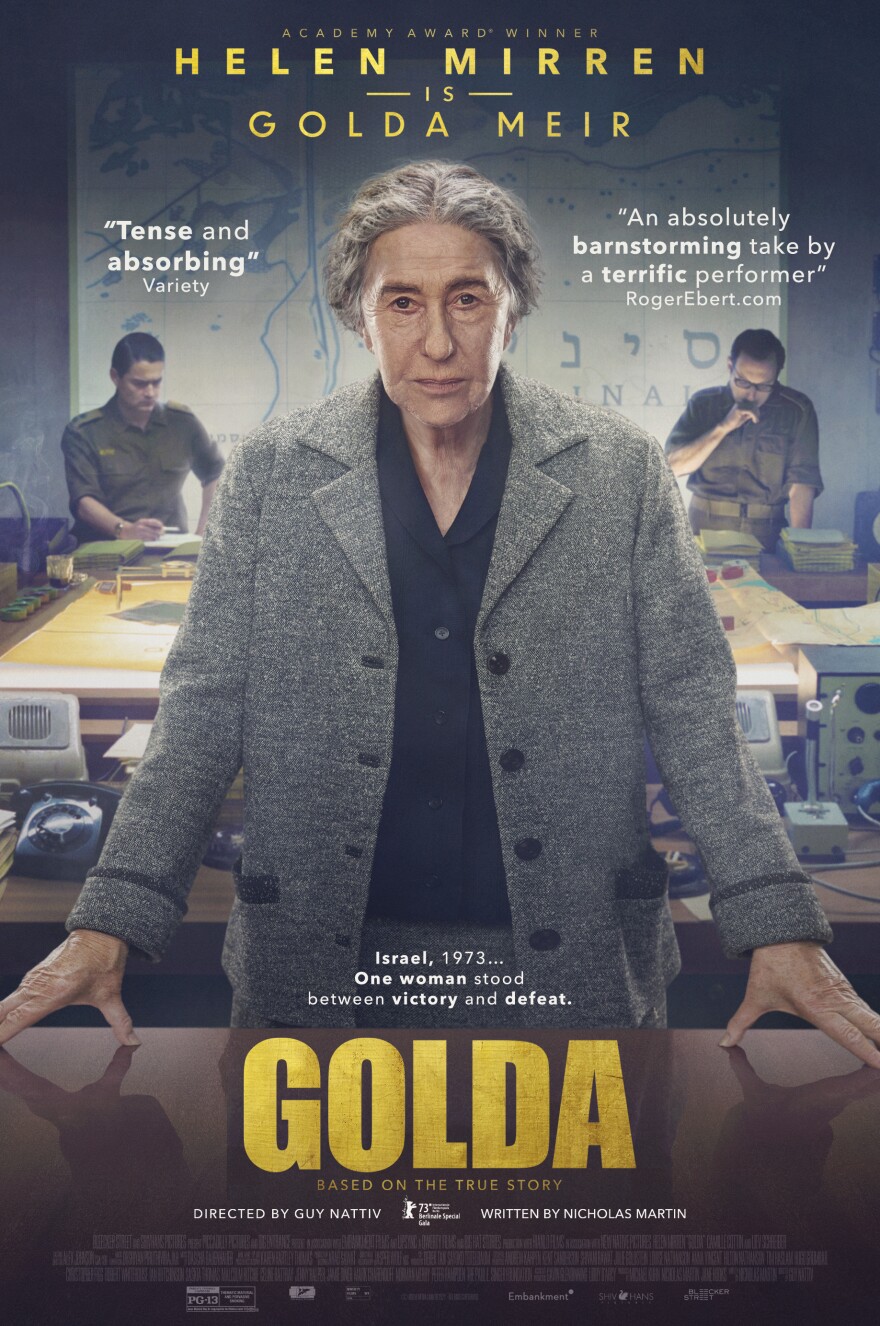The new movie Golda paints a picture of Israeli prime minister Golda Meir during the grave tensions of what’s called the Yom Kippur War. She was a woman dealing with a dangerous time, as well as with a lot of men. There’s plenty of potential drama in these situations, but the movie doesn’t get to it.
Golda Meir was elected as something of an interim prime minister, but wound up leading her country during a frightening time. In 1973, Israel was attacked from two sides – by Syria across the Golan Heights from the northeast and by Egypt from the southwest across the Suez Canal.
But in spite of the danger and excitement of the situation, and despite the fact that Golda Meir was the first woman to head the Israeli government, the movie feels like it’s been drugged. Dialogue is low-key and delivered in flat matter-of-fact voices.

Golda is played by Helen Mirren, one of the world’s fine actors. She’s made up to look the part of Golda Meir – a grandmother in dowdy dresses and lace-up black shoes with a small heel. Meir was 70 at the time, and unwell – she gets secret radiation treatments for lymphoma. She also smokes constantly and drinks prodigious quantities of black coffee.
But actual newsreel clips in the movie suggest a woman of piercing but disarming wit, and even if Meir spoke in dull tones during this tumultuous three weeks of what’s called the Yom Kippur War, a movie about her needs more excitement and dimension than this picture offers. By comparison, the many recent films about Winston Churchill leading England through World War II throb with the danger of the times, even without battle scenes.
Director Guy Nattiv’s Golda has no battle scenes, either, although Meir listens to the frantic transmissions of soldiers in trouble. But the story is certainly dramatically powerful. There’s the double surprise attack that came as Jews were entering the holy and contemplative holiday of Yom Kippur. The military was caught off guard as both the Syrian and Egyptian armies advanced. As the film shows him, Israel’s legendary military leader Moshe Dayan was overwhelmed and discombobulated. Other generals were arguing strategy.
But slow shots of Meir walking down lonely hallways to her medical treatments or alone in her modest apartment don’t create dramatic moments and neither does the shallowness of the Meir character. The Churchill films – with John Lithgow or Gary Oldman – show a cranky, complicated guy, struggling with his personal demons, his wife, other people around him – all amid terrifying moments like the rescue of the British army from Dunkirk.
Golda Meir, in this movie, seems even-tempered to a fault. She doesn’t get excited. She doesn’t lose her temper. She doesn’t have moments of doubt or fear. She may be steely, but if that’s her only note without contrast, it’s not enough to sustain a drama.
When Golda Meir was prime minister, Israel had more friends in the world than it does now. It was still viewed as a tiny, somewhat romantic and courageous little country. But now, there’s more controversy and opposition around the world over the issue of Israel’s treatment of Palestinians. So why a film about this Israeli heroine with no mention of the Palestinian question? Movies about the past are always also about their own present.
Director Guy Nattiv says the film creates a picture of the kind of responsible leadership that the country lacks under its current government. Perhaps so, but Golda is still a film that needs drama to make it matter.
Side note: Golda Meir was born in Kiyv, but grew up in Milwaukee. She then came to Denver and went to North High School. The house she lived in is now on the Auraria Campus.






